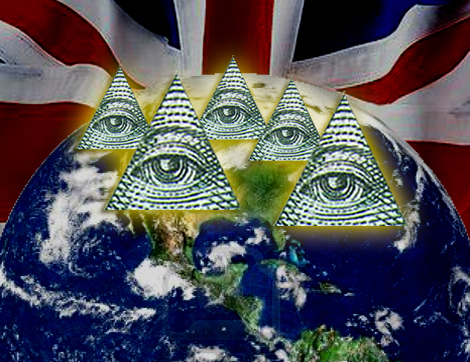
By Richard Walker
While its name could be the title of a trashy spy novel, the “Five Eyes” network just happens to be the most powerful espionage club in the world, capable of tracking all electronic communications. It can eavesdrop on every aspect of our lives, making the notion of total privacy a myth.
It began during the Second World War as an exclusive intelligence club of two members, Britain and the United States. By the 1950s, though, it had developed into a network to spy on the Soviet Union with the British leading the way because of their expertise in signals intelligence (SIGINT), the collection and analysis of electromagnetic emissions.
In simple terms, the British knew how to eavesdrop, package and analyze large amounts of information on communications coming out of Russia and its satellite states. They had, after all, been in the spying business long before the U.S., and their experience paved the way for a very special SIGINT network, partnering Britain’s General Communications Headquarters (GCHQ) with America’s National Security Agency (NSA).
The British later brought Australia, Canada and New Zealand onboard since they were part of the British Commonwealth of nations, and were ideally positioned to target parts of the world considered the biggest threats to the West, in particular the Soviet Union and China.
From Canada’s Arctic zone for example, it was possible to listen in to Soviet military and naval communications. As a consequence, the club divvied up the world and assigned individual slices of it to its members. For Australia and New Zealand, espionage targets included China, Vietnam, and India.
This amalgam of intelligence entities soon became the “Five Eyes Network,” the name having roots in orthodox intelligence procedures. For example, in Britain’s Secret Intelligence Service, or MI6, intelligence reports carried classifications such as “Secret” and “Top Secret.” The highest classification, “Eyes Only,” was used to signify that only a limited number of people could view a particular report. When the network began sharing intelligence among its members, it simplified the process by tagging the most highly classified materials as “Five Eyes Only.” In that way, it dispensed with the tedious task of listing the name of each member nation on highly classified reports, and in doing so gave itself a new title.
By the 1970s, NSA and GCHQ had developed enormous data-mining and analyzing capabilities, but it was not until 1988 that an enterprising British journalist, Duncan Campbell pried open ever so slightly a window into this fast-developing intelligence world. He revealed the existence of a UK-U.S. spy program, ECHELON, that gathered incredible amounts of information from electronic traffic across the globe. His revelation came in the shadow of the Cold War and was ignored by the mainstream media on both sides of the Atlantic. It would be another decade before New Zealand journalist, Nicky Hager drew international attention to ECHELON in his book, SECRET POWER: New Zealand’s Role in the International Spy Network. He not only blew the lid on the astounding espionage capabilities of ECHELON, but exposed the existence of the “Five Eyes” network.
But Hager’s efforts to came to nothing and it was not until the recent emergence of NSA whistleblower Edward Snowden that people began paying attention to the issue. Yet, despite the publicity, “Five Eyes” has been able to skirt privacy laws in individual countries. For example, NSA can target electronic traffic in Britain, absolving GCHQ of any guilt and giving it deniability. GCHQ can respond in kind to circumvent U.S. law.
According to an article in the UK’s Guardian newspaper, which was supplied with classified material by Snowden, GCHQ has been able to tap into the optic cable carrying all global communications and has shared the material with the NSA. The article states that “a total of 850,000 NSA employees and U.S. private contractors with top secret clearance had access to GCHQ databases.”
Despite the extensive coverage of Snowden’s claims about the overarching power of “Five Eyes,” the New Zealand government has voted to give its intelligence service free rein to target the private communications of its citizens. Meanwhile Australia, under pressure from “Five Eyes” partners, has stopped Chinese technology giant Huawei from supplying materials for the country’s broadband network. It was a strange ruling, given Huawei has provided equipment for projects in Britain and New Zealand.
But, considering what we little we know about this new world order in which our every electronic footprint is recorded and filed without our knowledge or approval, nothing should ever seem strange to us. We are now truly in the age of Big Brother.

